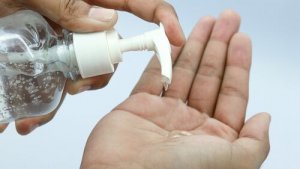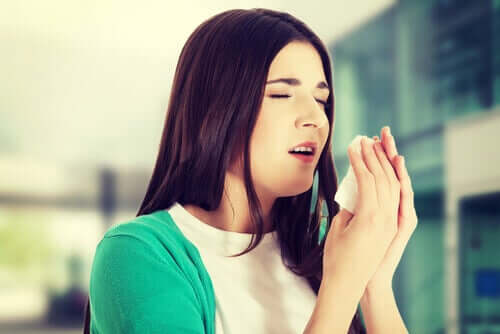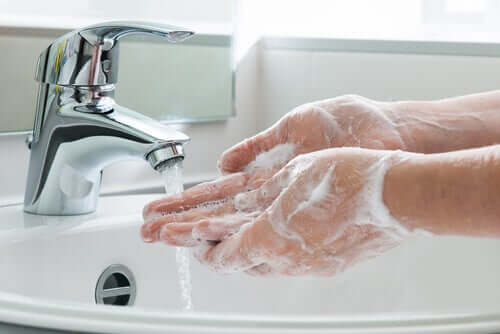Important Preventive Measures against COVID-19


Written and verified by the doctor Leonardo Biolatto
It’s crucial to know the preventative measures against COVID-19.
We’re currently witnessing a coronavirus epidemic. This virus, also identified as COVID-19, is affecting countries across the globe. Since December 2019, when the first cases were detected in China, the virus has quickly spread around the world. Many people are frightened. Many have even been quarantined or chosen to isolate themselves to prevent contagion. Likewise, many only go out on the streets wearing face masks. Overall, COVID-19 has sparked fear. Also, quarantine protocols were already established in many cities.
However, a lot of the information on this virus is being distorted. It’s becoming increasingly difficult to distinguish between fact and fiction. Preventive measures, incubation time, and mode of transmission have been surrounded by false beliefs.
COVID-19 is a virus transmitted by close contact between people and by respiratory droplets produced by coughing or sneezing.
In this article, we’ll explain the preventive measures to prevent the spread of COVID-19.
The first preventive measure against COVID-19: avoid infected areas
Although the virus is increasingly spreading throughout the world, there are areas with more cases than others. These are called risk areas, where it’s more likely to become infected. For example, northern Italy is one of them.
The key is to stay away from infected people. Although it seems simple, it isn’t. COVID-19 has an incubation period with an average of six days. Also, health services begin to saturate due to people taking diagnostic tests. This makes it almost inevitable to come into contact with people who don’t know they’re infected. However, it’s recommended you avoid being around people who have symptoms, even if they still don’t know if they’re infected or not.
Also, it’s wise not to go to crowded places. However, it’s up to health officials in each country to schedule these measures, including the cancellation of events or work activities.

Safe distance
Scientists state that the virus can travel approximately three feet. Therefore, we recommend staying at least three feet away from other people if you have any symptoms. Even in Italy, this measure is standard.
You may like this article: How to Avoid Catching and Spreading Coronavirus
You must wash your hands frequently
Hand washing is one of the most basic and helpful preventive measures for any infection. This is especially important after going to the bathroom, sneezing, or coughing (and, of course, if you’ve been in contact with a sick person). Although washing your hands with soap and water is enough, you can also use hand sanitizer.
When you sneeze or cough, it’s essential to cover your nose and mouth. Preferably, you should do it with a tissue. Also, you must wash your hands after.

This article may interest you: Medication for COVID-19 Currently in Development
Contact emergency services
If you’ve been in contact with an infected person and have started developing symptoms, don’t hesitate to contact emergency services. The warning symptoms are coughing, frequent sneezing, shortness of breath, and fever.
However, you must remember that the alarm is high nowadays. Health services are becoming saturated. Thus, it’s essential to consult them only if you really think you’re infected.
There are no special precautions regarding food or animal handling. However, it’s important to stay informed regarding COVID-19 news, as new measures and recommendations are being established each day.
The best preventive measures against COVID-19
As we explained in this article, the best preventive measures are frequent hand washing and staying away from areas of infection. If you see a person with symptoms such as coughing, for example, the ideal thing is to maintain a safe distance of three feet.
Remember to consult a doctor if you have suggestive symptoms. Likewise, if you suspect you may be infected, you should self-isolate to avoid infecting others.
All cited sources were thoroughly reviewed by our team to ensure their quality, reliability, currency, and validity. The bibliography of this article was considered reliable and of academic or scientific accuracy.
- Prevención y tratamiento Novel Coronavirus (2019-nCoV) | CDC. (n.d.). Retrieved March 11, 2020, from https://www.cdc.gov/coronavirus/2019-ncov/about/prevention-sp.html?CDC_AA_refVal=https%3A%2F%2Fwww.cdc.gov%2Fcoronavirus%2F2019-ncov%2Fabout%2Fprevention-treatment-sp.html
- Comunicado n°26 – Nuevas medidas preventivas para contrarrestar la propagación del covid-19 – Institucional / Comunicados – Universidad EAFIT. (n.d.). Retrieved March 11, 2020, from http://www.eafit.edu.co/medidas-preventivas-covid-19
- Actualización de medidas de prevención ante el COVID-19 – SEMES. (n.d.). Retrieved March 11, 2020, from https://www.semes.org/semes-divulgacion/actualizacion-de-medidas-de-prevencion-ante-el-covid-19/
- Información sobre el nuevo coronavirus | Universidad de Salamanca. (n.d.). Retrieved March 11, 2020, from https://www.usal.es/informacion-sobre-el-nuevo-coronavirus
This text is provided for informational purposes only and does not replace consultation with a professional. If in doubt, consult your specialist.








